Pablo Larraín’s Angelina Jolie-led Maria is an introspective, emotional look at the final days of the great American-born Greek soprano Maria Callas, following her journey to reconnect with her voice at the cost of her health. It’s also a bold and intelligent analysis of the form, content, and ethics of the celebrity biopic.
With Maria, Larraín concludes his trilogy of biographical films about iconic female personalities of the 20th Century, after 2016’s Jackie and 2021’s Spencer. The 2024 film shares much in common with the latter. Both were developed from screenplays penned by Peaky Blinders creator Steven Knight and dedicate considerable attention to the psyches of their muses, going inside their minds and blurring the lines between the objective reality and Maria and Diana’s perception of it.
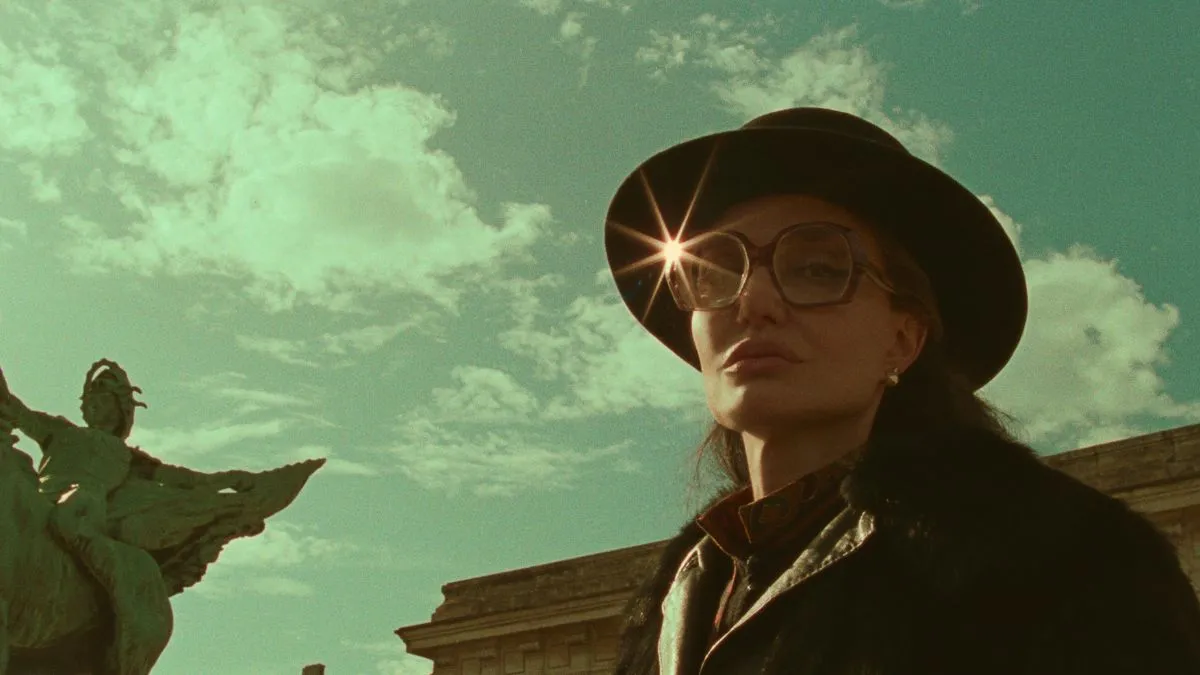
Through both of these films as well as other similarly insightful entries, such as 2019’s criminally underrated Rocketman or Larraín’s own El Conde, it’s clear that subjective realism is an efficient way to tackle this challenging genre. In theory, the celebrity biopic should provide a killer combo of thematic richness and commercial appeal, though it’s often botched by an obsession with historical accuracy or too concerned with the legend to give the person behind it the care and respect they deserve.
While many aspects of real life make it as compelling as anything fiction could come up with, it’s not enough to simply represent its events chronologically or neutrally with no regard for the specificities of narrative and, especially, cinematic narrative.
More importantly, when you set out to explore the life (and typically death) of someone whose story, or at the very least its outline, is already largely present in the audience’s conscience, it’s difficult to justify the existence of your film. That is why most of these films are dull and offer virtually nothing new to the medium that they, with little thought, have chosen to materialize through.
Larraín and Knight, however, understand that one of the few ways they can add to the conversation in any worthwhile manner is by daring to take creative liberties as they dive into a territory that was only truly known to the person at the center of their stories — their mind.
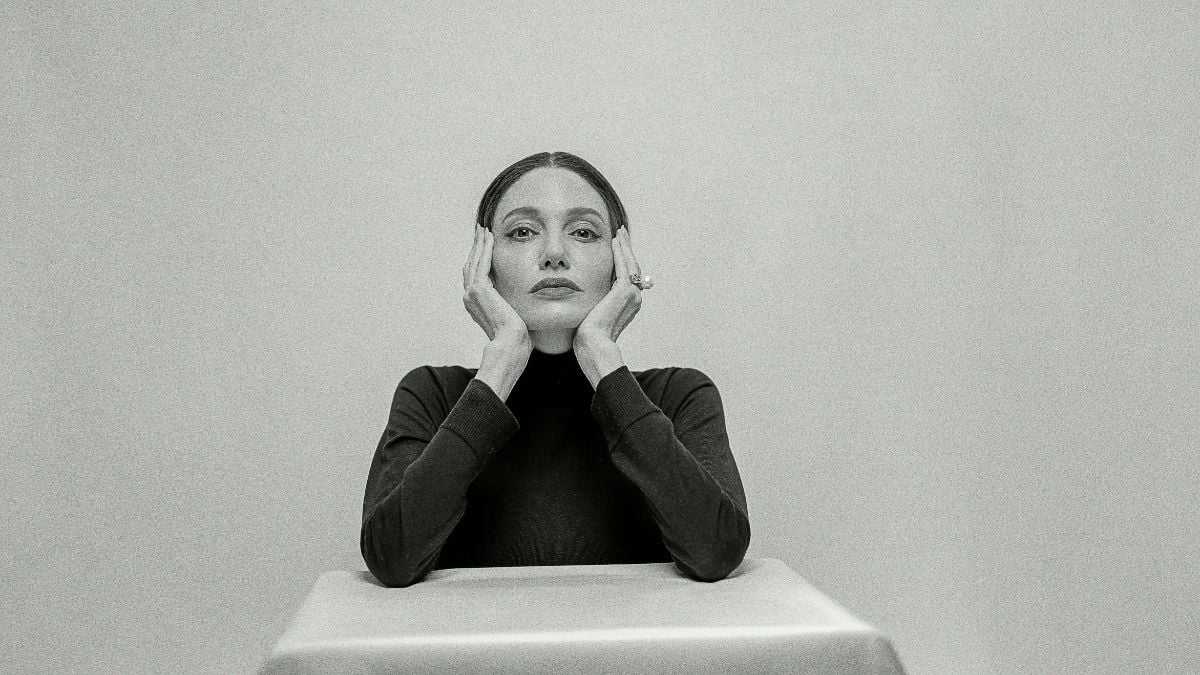
In Maria, however, the subjective realm gains an even more ingenious layer that, in turn, provides a whole set of meta-reflections about the celebrity biopic. The tormented artist struggled with her mental health in the final stretch of her life, abusing medication that could cause visions. This was an open invitation for Larraín to take the exercise in subjectivity he’s been carrying out in his previous films to an entirely new level.
In her mind, Larraín’s Maria is writing her autobiography. She enlists the help of a hallucinatory filmmaker and documentarian (played by The Power of the Dog‘s Kodi Smit-McPhee) who gets his name from the medication the singer takes to get through the day, Mandrax. He interviews her throughout the film, generating moments that are both completely detached from reality and dedicated to the most authentic, raw version of the film’s real-life protagonist. A version that is based on what is known about La Callas, but also significantly fabricated by writer and director — because, are biopics ever really anything else?
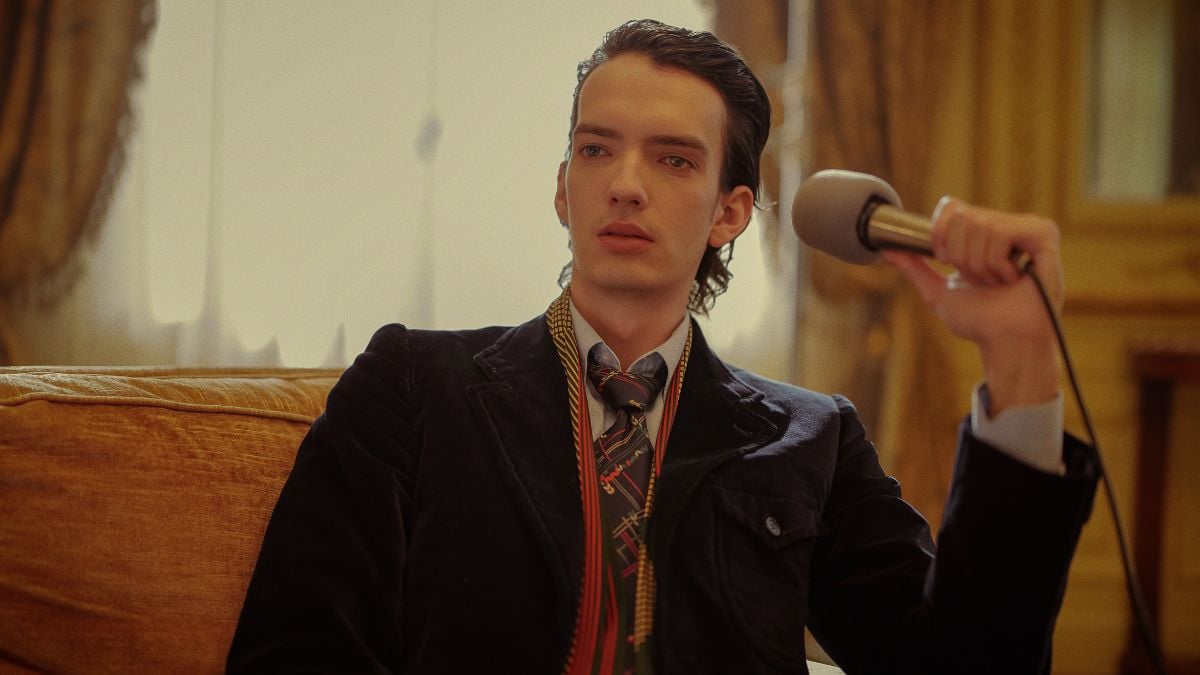
Larraín latches onto this narrative device, structuring the film around it. Stylistically, he includes self-referential elements like a film slate to mark each act, different formats to differentiate between modes of storytelling, and occasional bursts of handheld shakiness and dramatic zooming typically associated with the documentary style. Through this, he makes it clear that this film is just that — a film and, as such, a construction, a representation of something, but never the thing itself. We are watching a movie that contains a movie, itself contained in the mind of a protagonist whose life may feel like public property but was only ever truly hers to know.
Maria is a definitive statement about the space that celebrity biopics occupy because no matter how realistic, faithful, or flattering they attempt to be, they will never successfully capture a person’s life. The best alternative, then, is to create a true cinematic journey from that base material — a skill that Larraín has now completely mastered.
Of course, Maria still traces all the salacious chapters of La Divina’s life, from her mother’s attempt to pimp her out to Nazi officers during the Second World War, to her controversial relationship with Aristotle Onassis (Haluk Bilginer). The latter results in a fun, cinematic universe-type crossover with Larrain’s Jackie when the same actor who played JFK in that film (and in 2022’s much more contentious biopic, Blonde), Caspar Phillipson, shows up to chat with Maria about Onassis and his involvement with his wife.
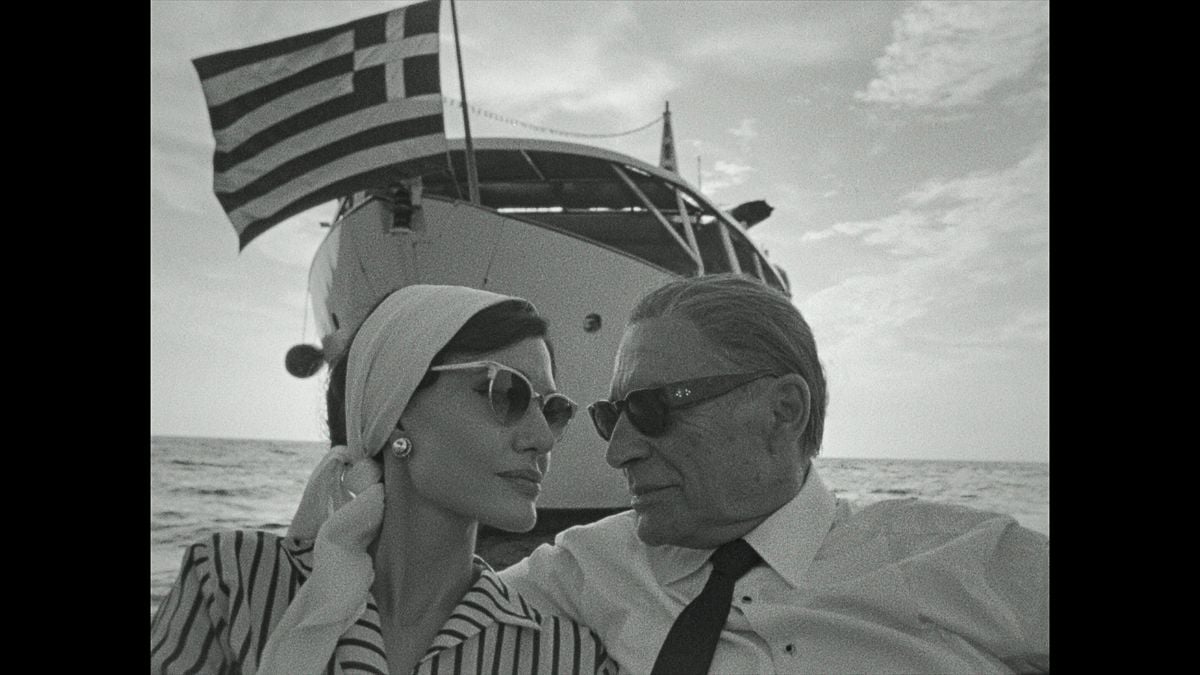
The emotional core of the singer’s life is made up of her two helpers, her loyal butler of 20 years Ferruccio (Pierfrancesco Favino) and her beloved maid Bruna (Alba Rohrwacher). Forced to add the role of caretaker and parent to their hefty list of responsibilities, the two live somewhat cloistered in Maria’s Paris apartment, trying to keep their boss (and loved one) from spiraling too fiercely and too quickly. They seem to be the only two people left who truly care about the once-adored stage star whom the world discarded once they could no longer derive pleasure from her voice.
Unable to sing, and with Onassis’s abusive presence finally gone from her life, Maria is faced with a terrifying emptiness that she has no idea how to fill. It’s the story of many similarly famous and ferociously worshiped retired celebrities, elevated by Knight’s screenplay, Larraín’s directing, and Jolie’s flooring performance into an intimate, psychosomatic trip down a tortured genius’ psyche.
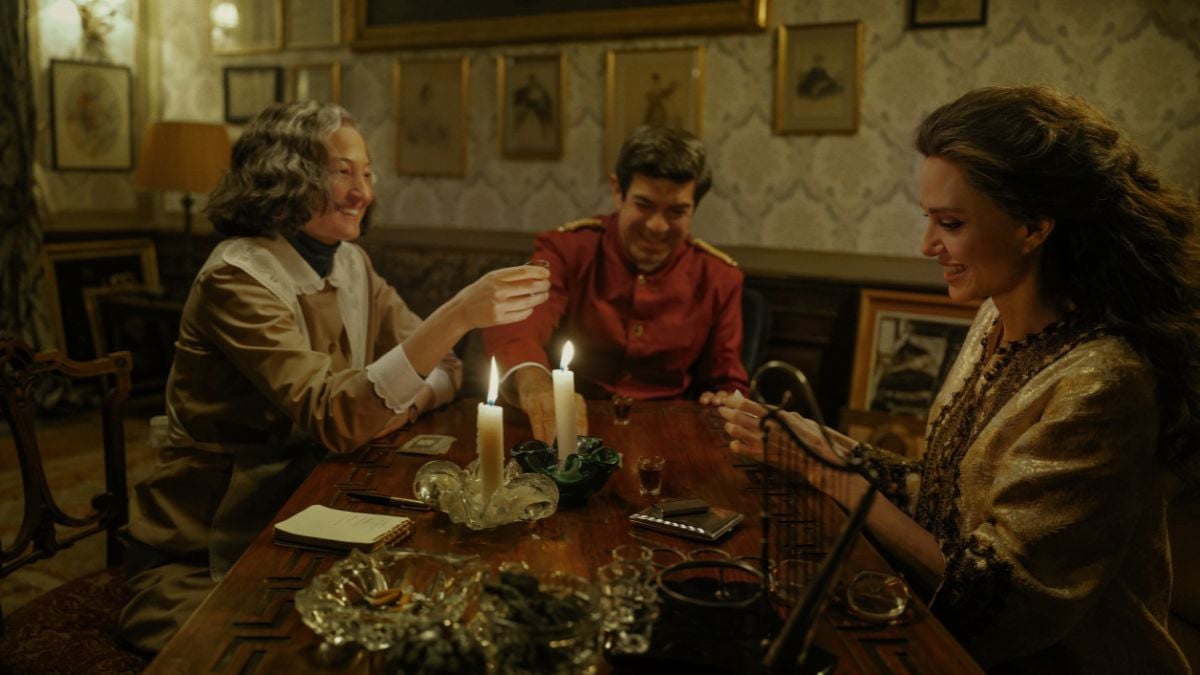
Callas was bigger than life, so it’s no wonder Angelina Jolie was Larraín’s choice from the start. The 49-year-old steps into an untapped well of pain in Maria, delivering a performance that is as self-assured as it is neurotic. The way she carries herself as the uncompromising diva and then crumbles when the script so requires grabs you by the throat and never lets up until the dramatic final sequence.
Maria is the culmination of an idea, defined by bold swings and vigorous rejections of form and expectations. It’s passionate and theatrical, sometimes overacted and over-directed, but only because that’s the type of film Larraín set out to make. One about a woman who felt everything so deeply it made her the most famous operatic performer in history. Still, Maria, unlike its eponymous protagonist, is never afraid of the quiet and the opportunity it provides for contemplation. There’s so much of it found among this film’s stylistic and structural irreverence, anchored in a fine-tuned performance by its leading lady (herself one of the impossibly charismatic icons of her time).
This final entry in a trilogy that, more than portray the lives of three legendary women, aims to converse, question, and tear apart the celebrity biopic conventions, is an unabashed triumph. It’s a staple and an example of how to create true cinema from what has become one of its most boring and stale genres.

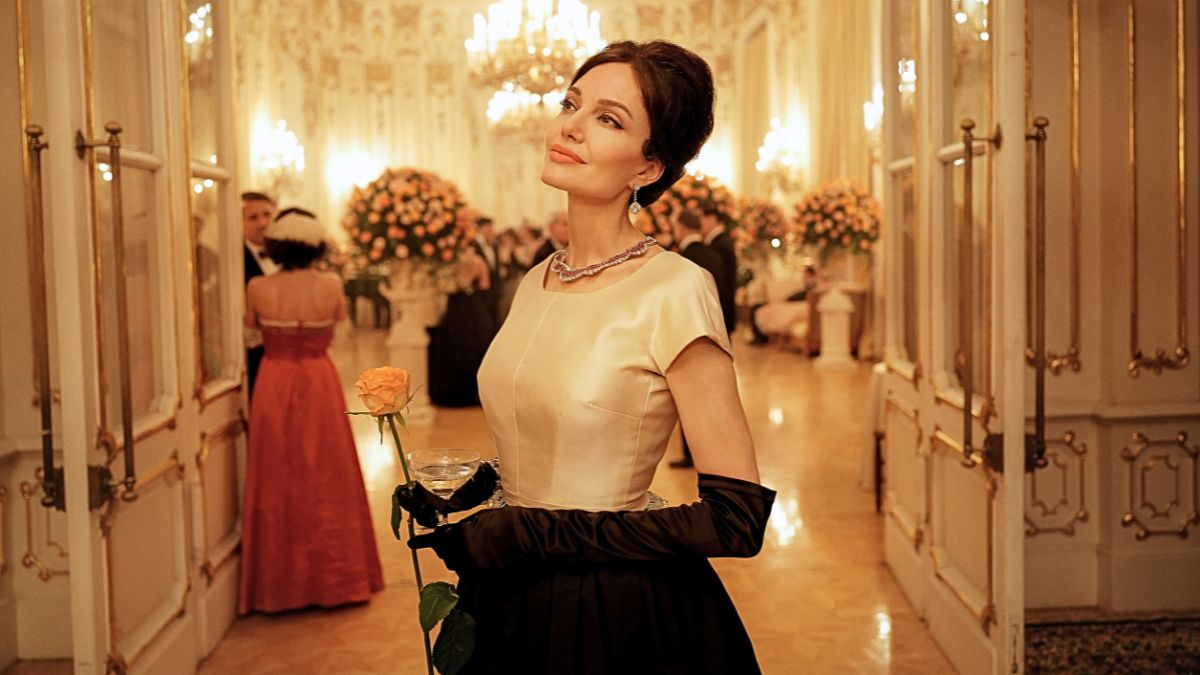









Published: Dec 12, 2024 08:30 am